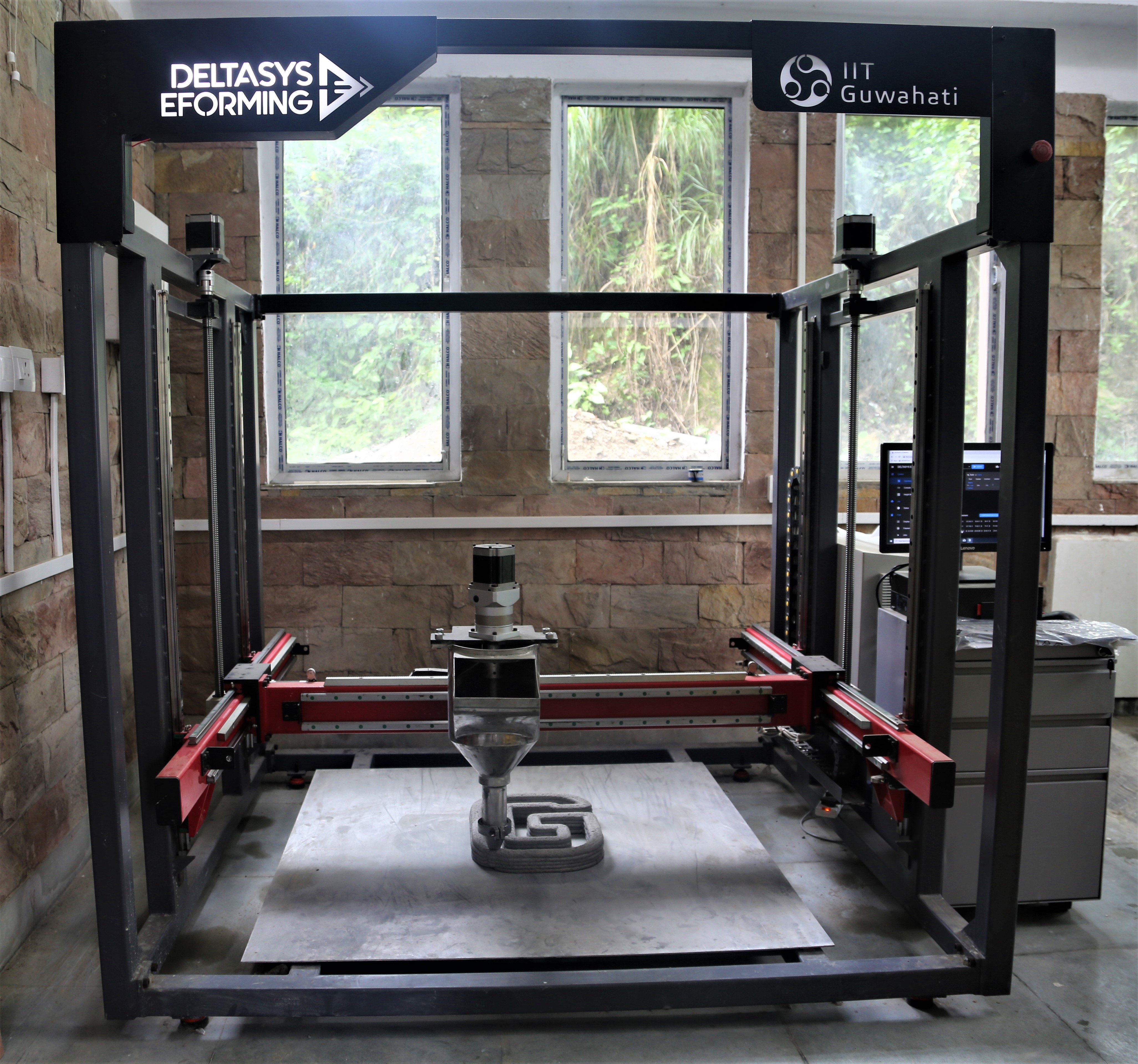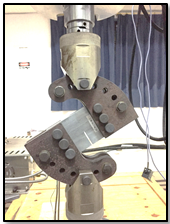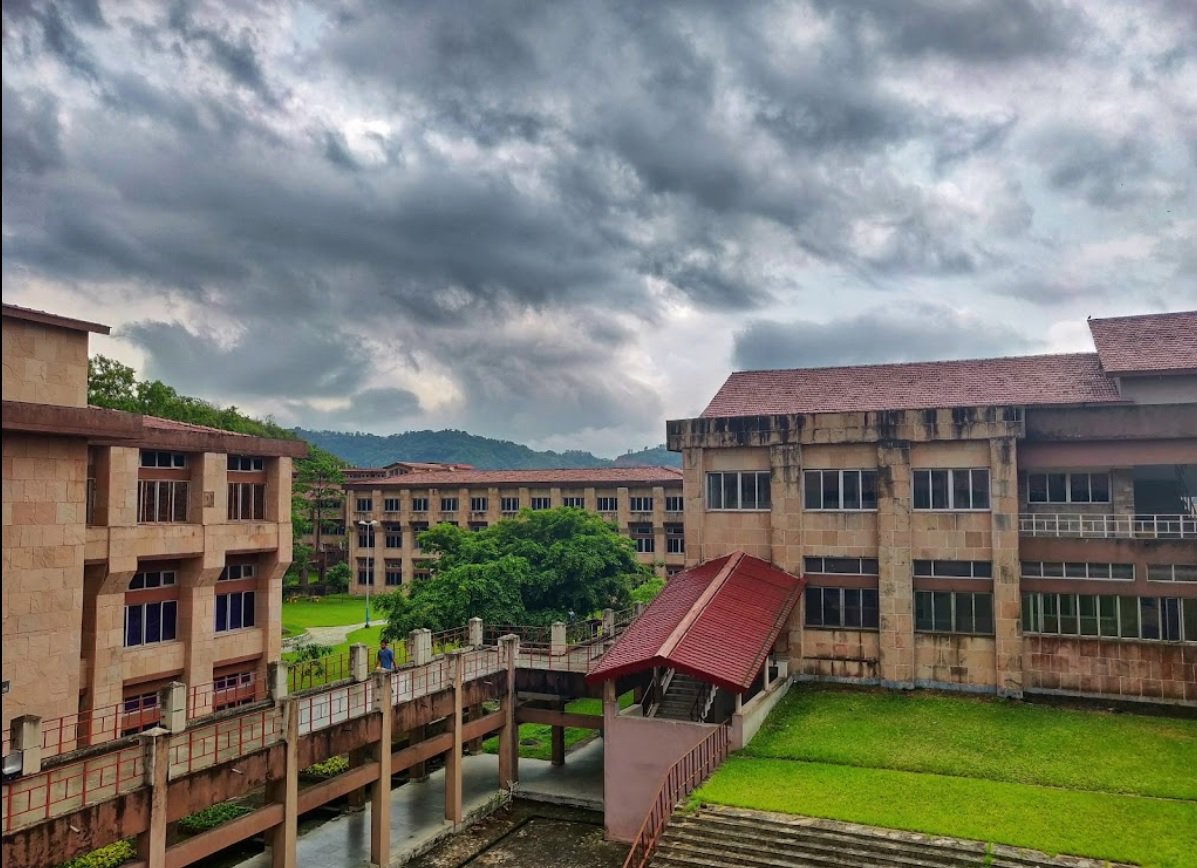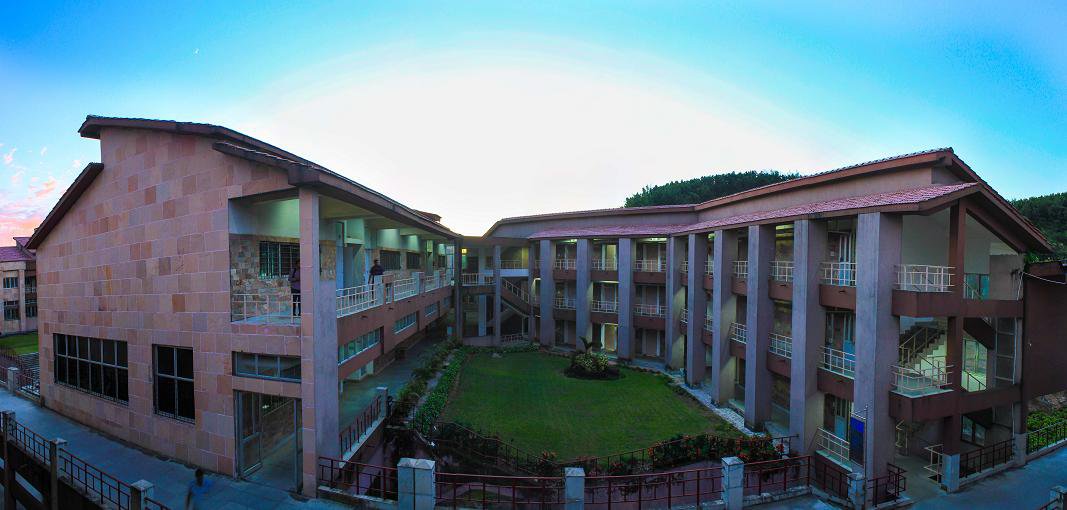

About ME,IITG
The department of mechanical engineering, being one of the largest and oldest departments of the institute, caters to its students with class tutorial and state-of-the-art laboratories. The department is continuously striving to achieve excellence in education, academic and industry oriented research as well as consultancy work with service to the society.
News
View all-
Jan. 19, 2024, 4:06 p.m.
-
Jan. 12, 2024, 8:42 p.m.
-
Jan. 5, 2024, 11:38 a.m.
-
Jan. 1, 2024, 12:37 p.m.
-
Oct. 10, 2023, 12:46 a.m.
-
Oct. 11, 2023, 12:43 a.m.
-
Sept. 12, 2023, 2:51 p.m.
-
Patent on prosthetic knee joint granted to Prof. S. Kanagaraj, Professor, Mechanical Engineering NEWSept. 12, 2023, 2:50 p.m.
- 1st Rank Holder at the Prototype Development Stage in the National Bamboo Innovation Challenge in October 2022(Faculty Awarded) awarded to Poonam Kumari by Foundation of MSME Clusters (FMC)! NATIONAL BAMBOO INNOVATIONCHALLENGE 2022
- First Prize for presentation at nternational Conference on Biodiversity, biogeochemistry, and ecosystem sustainability in changing environment(Best Paper) awarded to Pranab Kumar Mondal by nternational Conference on Biodiversity, biogeochemistry, and ecosystem sustainability in changing environment Best Paper Award Mizoram Univesity
- JSPS Fellowship 2023(Faculty Awarded) awarded to Pranab Kumar Mondal by Japan Society for the Promotion of Science JSPS Fellowship PKM
- Best Exhibitor at NERC 2022(Faculty Awarded) awarded to Biranchi Panda by NERC Best Exhibitor at NERC 2022
- Abdul Kalam Technology Innovation National Fellowship 2022(Faculty Awarded) awarded to Shyamanta M. Hazarika by Indian National Academy of Engineering (INAE) Abdul Kalam Technology Innovation National Fellowship
Announcements
View all-
May 21, 2025, 8:52 a.m.
-
April 14, 2025, 8:48 a.m.
-
PhD Admission July 2025 CLOSING SOONApril 3, 2025, 8:27 p.m.
-
March 17, 2025, 4:52 p.m.
-
Oct. 10, 2023, 12:13 p.m.
-
Oct. 6, 2023, 4:55 p.m.
-
Student Leave Rules IMPORTANTJan. 9, 2022, 9:12 p.m.
Events
View all- 20th International Conference on Vibration Engineering & Technology Of Machinery XX VETOMAC 2025
[Conference]
Dec. 18, 2025, midnight - Dec. 20, 2025, 5 p.m.Other Upcoming
- International Conference on Micro Nano Fluidics (ICOM 2025)
[Conference]
Oct. 31, 2025, 8 a.m. - Nov. 2, 2025, 8 p.m.Other Upcoming
- Symposium on Advances in Thermo-Fluid Sciences
[Conference]
Sept. 5, 2025, 8 a.m. - Sept. 6, 2025, 6 p.m.Other Upcoming
- Invited Talk by Prof. Cameron Tropea Technical, University of Darmstadt, Germany
[Seminar]
March 25, 2025, 3 p.m. - March 25, 2025, 5 p.m.Seminar hall
- 8th Asian Conference on Mechanics of Functional Materials and Structures (ACMFMS-2022)
[Conference]
Dec. 11, 2022, 9 a.m. - Dec. 14, 2022, 6 p.m.Online
Faculty
Students
Laboratories
Legacy
Research Areas

Research in fluid and thermal engineering comprises everything from hydraulic pumps to jet engines. A team of research students and faculty members work collectively to model fluid dynamics and heat flow problems computationally to translate them into real-life situations. The research areas in fluids and thermal include Micro and Nano-scale Thermal/Fluid Transport, Computational methods for Incompressible/Compressible Flows, Multi-phase Flows, Turbulence Modelling, Energy Management and Conservation, High-speed Aerodynamics, Nuclear Fusion Energy

Manufacturing engineering has been one of the significant focus research areas of Mechanical Engineering at IITG. Presently, the researchers investigate every aspect of manufacturing, from automotive and aerospace to electronics and medical applications. The manufacturing engineering group at IITG work on diversified research areas like Bio-MEMS, Casting, CAD/CAM/CIM, Coating, Composites, Computer Application in Metal Forming, Design and Manufacturing, Electromagnetic pulse processing, FEM, Neural Network, Fuzzy Set Application, Genetic Algorithms and Fuzzy logic in manufacturing, Mechatronics, Metal Forming, Unconventional machining processes, Welding of lightweight metals, Welding Process Monitoring.

The machine design group in the mechanical engineering department is diverse, consisting of experimentalists and computational experts who work on many ground-breaking as well as classical problems inspired by materials physics, biology, and automotive engineering. Some of the key research areas include Acoustics, Active Materials, Composites, Dynamics and Vibrations, Finite Element Method and Analysis, Fracture Mechanics and Design, Robotics, Micromechanics, Nanocomposites, Rolling Element Bearings Design and Analysis, Smart Structures, Tribology.


